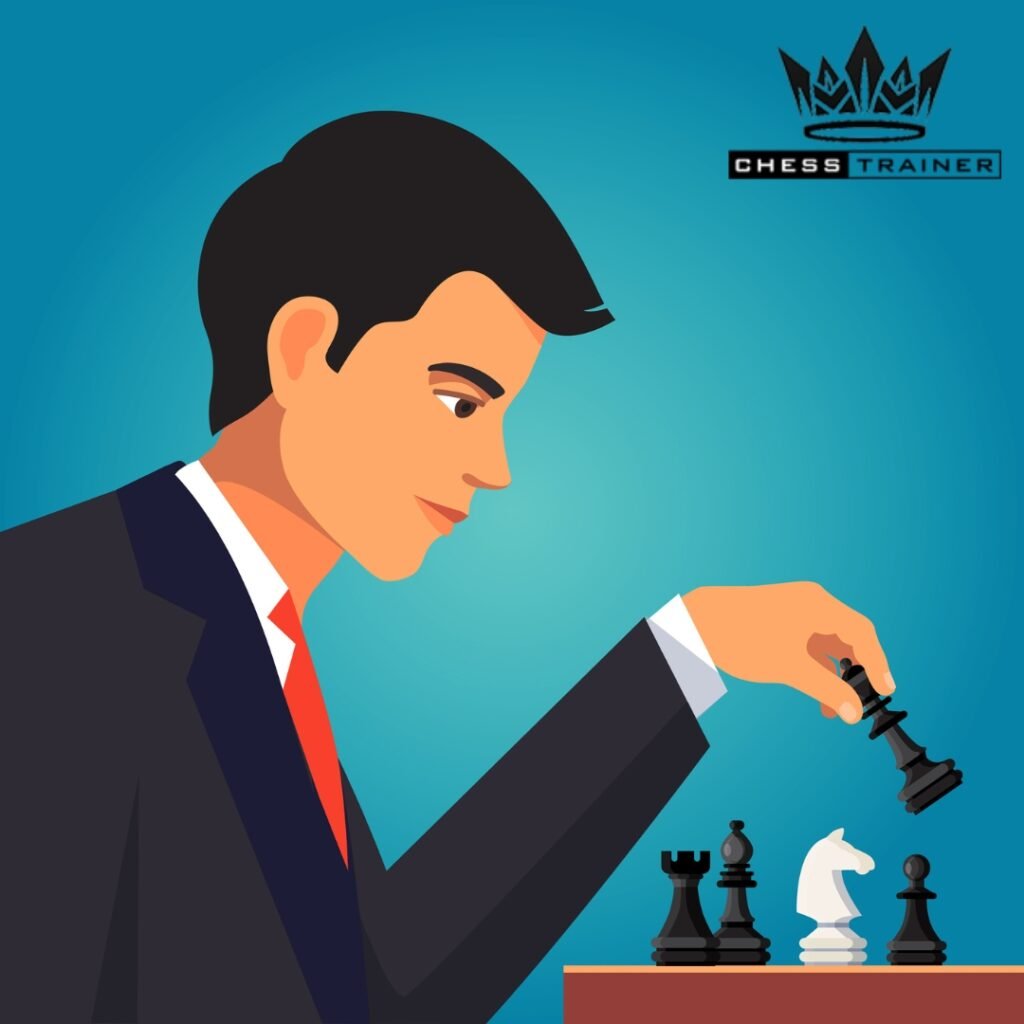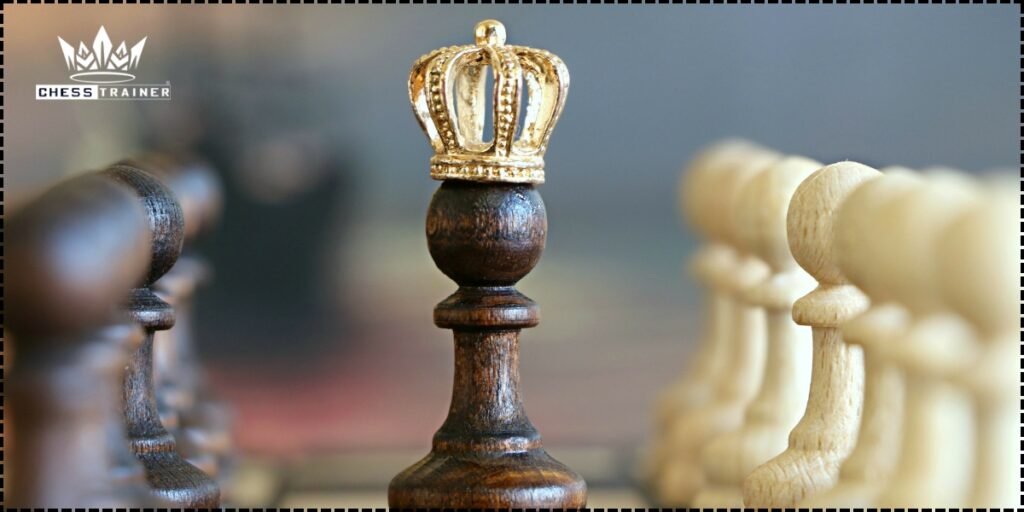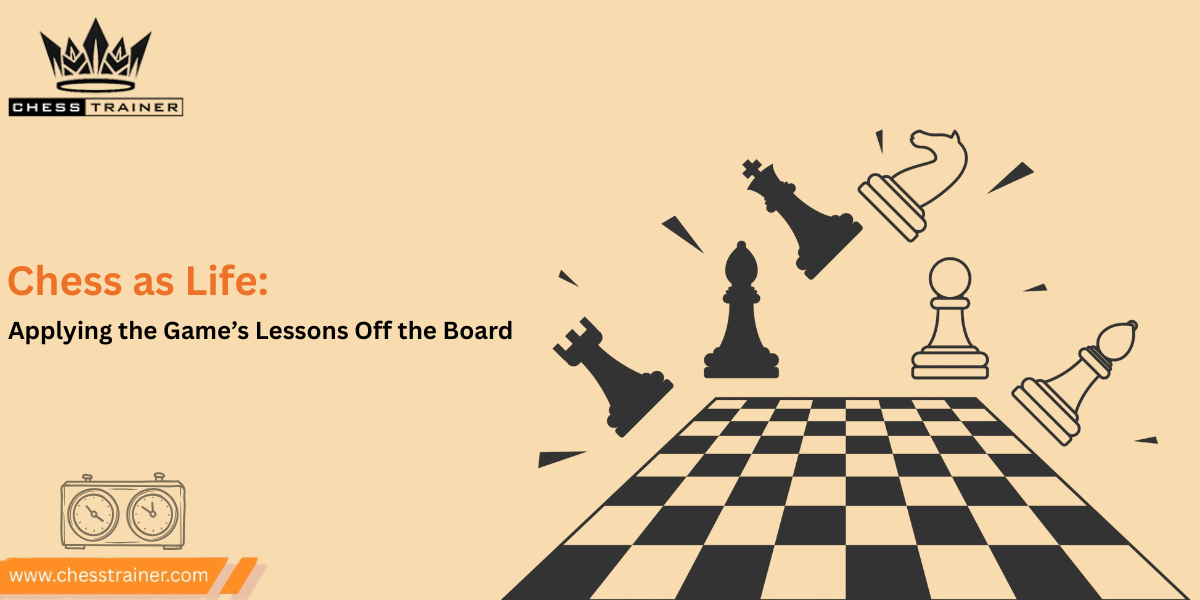Chess as Life: Applying the Game’s Lessons Off the Board
Chess is often called the game of kings, but its influence extends far beyond the checkered board. In fact, many enthusiasts and strategists see chess as a microcosm of life itself. The intricate interplay of tactics, patience, and foresight in chess teaches profound chess life lessons that can transform personal and professional decision-making, promote discipline, and foster personal growth.
At Chess Trainer, we believe that understanding chess strategies for life can help individuals navigate daily challenges with a sharper mind and a steadier heart. Whether you’re facing a tough decision at work, managing relationships, or simply planning your next life step, the principles learned from chess provide timeless guidance.
FIDE Instructor Dhanesh Shrikhande, a seasoned chess trainer and founder of chesstrainer.com, has seen a significant rise in adult learners seeking virtual coaching. According to him, adults benefit from structured, self-paced learning modules that online platforms uniquely offer.
The Parallels Between Chess and Life
Just as each chess piece has its unique movement and purpose, individuals in life have distinct roles and abilities. Recognizing these differences and leveraging them strategically is one of the first life lessons from chess. Chess doesn’t just teach how to win a game; it teaches how to think about every move you make, encouraging deliberate action rather than impulsive reactions.
Strategic Thinking in Life Inspired by Chess
One of the most powerful chess life lessons is the importance of strategic thinking in life. In chess, you don’t focus solely on your next move but consider the entire game, anticipating your opponent’s strategies. Similarly, life requires long-term planning, understanding consequences, and adapting to unexpected changes. By applying chess strategies for life, we learn to:
- Set clear goals and identify potential obstacles.
- Think several steps ahead in personal and professional scenarios.
- Avoid knee-jerk reactions by assessing all possible outcomes.
This mindset cultivates a more structured approach to problem-solving and personal development.
Decision Making from Chess
Every chess game hinges on a series of decisions under pressure. The same applies to life, where every choice carries weight and shapes our path. The discipline of evaluating multiple options before making a move in chess translates to improved decision making from chess in everyday life.
For instance, when faced with a career choice, applying chess life lessons helps us analyze the pros and cons methodically rather than being swayed by momentary emotions. It teaches us that some sacrifices are necessary for long-term gains, much like exchanging a valuable piece for positional advantage.
Patience Lessons from Chess
Patience is perhaps one of the most underrated chess life lessons. A rushed move in chess often leads to defeat, and the same holds true in life. Practicing patience lessons from chess empowers individuals to remain calm and composed, even in challenging circumstances.
In business, relationships, or personal goals, taking time to analyze situations thoroughly and waiting for the right moment to act can lead to far greater success. Chess instills the virtue of patience, demonstrating that sometimes the best strategy is to wait for your opponent to make a mistake.
Problem-Solving Skills Chess Can Teach
One of the key benefits of chess is its ability to sharpen the mind and enhance problem-solving skills chess enthusiasts develop. Every match is a complex puzzle that requires creative solutions and adaptive strategies.
Incorporating chess life lessons into everyday challenges helps us approach problems with a tactical mindset. Whether it’s resolving conflicts, managing time effectively, or dealing with unforeseen obstacles, the analytical and systematic approach learned from chess proves invaluable.
Chess and Personal Growth
Personal growth often stems from how well we can navigate life’s complexities. Chess and personal growth are intricately linked, as the game pushes players to confront their weaknesses, learn from mistakes, and strive for continuous improvement.
Applying chess strategies for life encourages self-awareness and resilience. Every loss in chess is an opportunity to analyze what went wrong and how to improve next time. This reflective practice fosters a growth mindset, enabling individuals to evolve through challenges rather than being defeated by them.
Discipline from Chess

Discipline is a cornerstone of success, and chess is a masterclass in disciplined thinking. The structured nature of the game demands focus, adherence to rules, and a systematic approach to every move. These chess life lessons are essential in cultivating discipline in daily life.
When we consistently apply discipline from chess to our routines, whether it’s maintaining a work schedule, developing healthy habits, or committing to learning new skills, we build a strong foundation for success. Chess teaches that discipline isn’t restrictive; rather, it empowers us to make better choices and achieve our goals efficiently.
Life Skills Through Chess

Ultimately, the greatest takeaway from chess is the development of essential life skills through chess. These include critical thinking, emotional control, strategic planning, and adaptability.
- Critical Thinking: Chess players analyze complex situations and anticipate future consequences, enhancing decision-making capabilities.
- Emotional Control: Managing emotions during a tense game reflects in handling stress and pressure in life.
- Strategic Planning: Just as a chess master plans moves in advance, life benefits from forward-thinking strategies.
- Adaptability: Unforeseen moves by an opponent teach flexibility and the ability to pivot in response to changing circumstances.
Chess offers more than just entertainment; it’s a profound teacher of life skills. FIDE Instructor Dhanesh Shrikhande emphasizes that every match is a lesson in resilience and adaptability. By focusing on chess life lessons, players can translate the discipline and strategic thinking cultivated in the game to various aspects of their personal and professional lives.
The essence of chess strategies for life lies in understanding the importance of calculated risks and measured patience. Much like in a complex game of chess, life presents unforeseen challenges and opportunities that require thoughtful navigation. Applying these strategies encourages individuals to approach problems analytically, anticipate potential outcomes, and make informed decisions that lead to sustainable success.
Moreover, life lessons from chess extend to understanding the value of every small decision. In chess, a seemingly minor move can have significant consequences later in the game. Similarly, the decisions we make daily, whether regarding health, relationships, or career, cumulatively shape our life’s trajectory. Recognizing this principle fosters a more mindful and deliberate approach to life.
Applying chess principles goes beyond strategic thinking; it cultivates a mindset geared towards continuous learning. Each game presents a unique set of puzzles that, once solved, enhance the player’s cognitive flexibility. This adaptability is crucial in real life, where rigid thinking can hinder personal and professional growth.
Strategic thinking in life empowers individuals to set long-term objectives, plan actionable steps, and remain flexible when circumstances change. It teaches that foresight and planning are not just beneficial but necessary for achieving meaningful goals.
Decision making from chess emphasizes the need to weigh pros and cons carefully, much like evaluating multiple possible moves in a chess game. It teaches that every decision carries weight and that calculated risks, backed by thorough analysis, often lead to the most rewarding outcomes.
Patience lessons from chess highlight that success is rarely instantaneous. Chess encourages individuals to wait for the right opportunity rather than forcing progress prematurely, reducing the likelihood of mistakes caused by impatience.
Problem-solving skills chess players develop are invaluable when applied to real-life scenarios, from navigating workplace conflicts to managing complex projects.
Chess and personal growth foster self-awareness and resilience, promoting continuous evolution through challenges rather than being defeated by them.
Discipline from chess supports time management, goal setting, and consistency, which are essential for success in any area of life.
Finally, life skills through chess encompass critical thinking, emotional resilience, strategic planning, and adaptability, all contributing to a balanced, thoughtful, and purposeful life.
Conclusion
The parallels between chess and life are profound. At Chess Trainer, we emphasize that the chess life lessons extend well beyond the 64 squares of the board. By embracing chess strategies for life, integrating life lessons from chess, and applying chess principles daily, individuals can enhance their problem-solving abilities, build patience, make better decisions, and grow personally and professionally.
Chess is more than just a game; it’s a guide to strategic living. Whether you’re a beginner or a seasoned player, the insights you gain from the game can empower you to lead a more thoughtful, disciplined, and successful life.
Explore more insights, training programs, and resources on chess and personal growth at Chess Trainer, and let the game of kings inspire your life’s journey.
Also Read: Is Online Coaching by a FIDE Trainer Worth It?
👉 Follow Us on Social Media! Stay Connected & Stay Ahead! 👇
📘 Facebook || 📸 Instagram || 💼 LinkedIn || 🎯 Twitter || 📌 Pinterest

